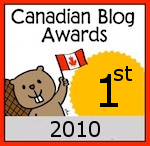The reason I ask that long-winded question is this “opinion”, which is presented as if it were fact, in the National Pest, Canada’s would-be paper of record:
Venezuelan President Hugo Chavez has been accused of many things: squandering his country’s oil income, suppressing opposition media, using his army to intimidate the citizenry. Now, documents recovered from computers belonging to FARC, the drug-funded Leninist insurgency based in Colombia, suggest Mr. Chavez may be actively undermining the sovereign government of its western neighbour. If so, the Western Hemisphere may be about to gain its first internationally designated state sponsor of terrorism.
Specific details of the file trove were scarce until The Wall Street Journal went to press on Thursday with a front-page story on the contents. In it, U. S. intelligence sources provided with copies of the documents claim that they appear to be authentic and that they contain damning details of high-level co-operation between Mr. Chavez and FARC. Colombia is still awaiting the results of a forensic audit of the files by Interpol. But at least some of the publicly known content of the document trove has been confirmed. (In a particularly absurd twist, FARC chose to disavow the existence of high-level contacts with the Venezuelan government … by issuing a communique on the Web site of the Venezuelan information ministry.)
The activities described in the Colombian FARC files should arouse the highest indignation wherever the ideal of nonintervention between sovereign states is still taken seriously. Certainly it would take a great deal of nerve on the part of Mr. Chavez’s supporters on the North American left, who have been screaming continually about the sacred inviolability of Saddam Hussein’s Iraq, to ignore the revelations. An e-mail from 2005 confirms the long-suspected presence of a FARC operations base inside Venezuela. Other e-mails apparently describe Venezuelan intelligence efforts to smuggle shoulder-fired anti-aircraft missiles and rocket-propelled grenades into FARC hands. Mr. Chavez’s personal involvement is confirmed throughout.
The beneficiaries of all this red solidarity are formally considered a terrorist organization under the laws of Canada, the United States and other senior democracies. Founded in 1964, FARC has a black history of atrocities that includes terrorism, executions, hijackings, assassinations, kidnap-pings and torture. The group is, in short, an enemy of democracy and order in Colombia, and of the human race generally. Providing aid to FARC would be the most sordid crime to date in the annals of Chavismo. And if Interpol confirms the truth of the Journal report, the legitimacy of the Venezuelan government should climb to the top of the agenda for both Canadian and U. S. lawmakers.
That’s it. There’s no name attached. It’s not even labelled an editorial, which as I understand it, is the only thing in a newspaper that can go unsigned. Whether that is simply a “noble journalistic tradition” (journalism, that mug’s game, has “noble traditions”?), or whether, as here, it’s just convenient to cover the author’s ass when he is spouting shit, either way, it strikes me as cowardly. If you’re going to iterate an opinion, at least show your face and sign your name to it. That way, we know who to peg for an untrustworthy source.
Not, I hasten to add, that the National Pest is a source to be trusted in general; it was Conrad Black’s bastard offspring, and now it’s been adopted by the neo-con Aspers. Anyone relying on it for the news or anything of life-changing import will end up as brainwashed and brain-dead as a viewer of FUX Snooze.
But this article, cast as opinion but laying out its statements as if they were facts, also nicely skirts Canadian libel law. Clever work on the part of the editors, but again: Cowardly. If they’re going to say such horrible, untrue things about the head of a sovereign country, they should own up, man up–and lawyer up. Never mind that this is “opinion”, there is no defending anything in it. The fair comment provision demands that opinions be based in fact. The fact that no one from the media has seen or shown the Magic Laptop, that no one has seen or shown the public the documents it allegedly contains, and so on, should tell you something. Namely, that it is irresponsible to comment on it as if it were factual, never mind slamming the democratic president of Venezuela as a “red terrorist”.
Perhaps we should start filing this “news” paper, and the crapaganda-mongering WSJ, under Fiction, alongside Tom Sawyer, Huckleberry Finn, Gulliver’s Travels, etc. It would be the honest, factual thing to do, no?




The part that really blows me away at the start was this statement:
“…the Western Hemisphere may be about to gain its first internationally designated state sponsor of terrorism.”
It’s hardly a secret that the US has long been involved in attempting to overthrow numerous governments that were so inconvenient as to not cowtow to US policies. Even if Chavez was 100% guilty, when are they going to get around to prosecuting the US governments who have done the exact same thing or worse?
Uh, probably never. The US didn’t sign on for the International Criminal Court in The Hague, for reasons I’m sure you can very easily guess.